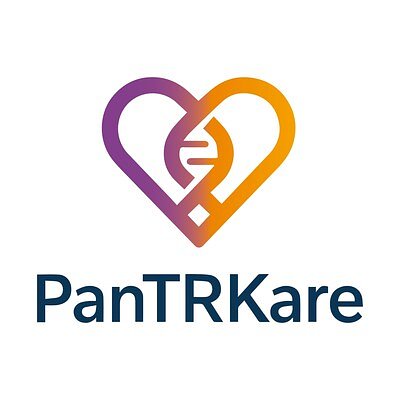
China Approves First Pan-Solid Tumor NGS Test for TRK Fusion Cancers, Boosting Precision Oncology
Geneseeq’s PanTRKare™ kit receives NMPA approval, paving the way for broader access to targeted therapies like Roche's Rozlytrek for patients with rare, yet treatable, cancers driven by NTRK gene fusions.
China Approves First Pan-Solid Tumor NGS Test for TRK Fusion Cancers, Boosting Precision Oncology
Shanghai, China – November 10, 2025 – In a significant step forward for precision oncology in China, Geneseeq Technology Inc. has received approval from the National Medical Products Administration (NMPA) for its PanTRKare™ kit, the nation’s first next-generation sequencing (NGS)-based companion diagnostic (CDx) test applicable across all solid tumor types for detecting NTRK gene fusions. This approval will enable more accurate patient selection for targeted therapies like Roche’s Rozlytrek (entrectinib), offering renewed hope for individuals with rare and often aggressive cancers driven by these genetic alterations.
While NTRK gene fusions occur in less than 1% of all solid tumors, they represent a powerful therapeutic target. These fusions result in the production of abnormal proteins that drive uncontrolled cell growth. Fortunately, drugs like entrectinib are specifically designed to inhibit these proteins, offering a potentially life-changing treatment option. However, accurately identifying patients who harbor these fusions is crucial. Traditional diagnostic methods often lack the sensitivity and precision to detect these rare events.
“The approval of PanTRKare™ represents a significant advancement in our ability to deliver personalized cancer care in China,” said a representative from Geneseeq. “This test will help us identify patients who are most likely to benefit from targeted therapies, ultimately improving outcomes.”
Filling a Critical Diagnostic Gap
PanTRKare™ distinguishes itself from other diagnostic tests by its “pan-solid tumor” applicability. Unlike tests limited to specific cancer types, PanTRKare™ can be used to screen patients with a wide range of malignancies, expanding access to potentially life-saving treatments. The test was validated in a large-scale, multi-center clinical study involving over 2,400 patients and 33 different tumor types. The study demonstrated high accuracy, sensitivity, and reproducibility, successfully detecting over 200 unique NTRK fusion variants.
“Historically, identifying NTRK fusions has been challenging,” explained an independent oncology expert. “The rarity of these events requires highly sensitive and specific testing methods. NGS-based tests like PanTRKare™ offer a significant improvement over traditional methods.”
The approval comes amidst a rapidly evolving landscape of precision diagnostics in China. The country is investing heavily in NGS technologies and is actively encouraging the development of CDx tests to support the adoption of targeted therapies. However, competition in the market is fierce, with both domestic and international companies vying for market share. Companies like OrigiMed and Burning Rock Biotech are also developing and receiving approvals for NGS-based CDx tests, further driving innovation and expanding access to precision medicine.
Roche Partnership and Expanding Treatment Options
The approval of PanTRKare™ is intrinsically linked to Roche’s commitment to providing targeted therapies for NTRK fusion-positive cancers. Rozlytrek (entrectinib) has already received approval in China for these indications, but accurate patient selection is critical for maximizing its efficacy. The collaboration between Geneseeq and Roche ensures that patients can be accurately identified and receive the appropriate treatment.
“This partnership is a testament to the power of collaboration in advancing cancer care,” said a source familiar with the deal. “By combining Geneseeq’s diagnostic expertise with Roche’s therapeutic capabilities, we can deliver a truly comprehensive solution for patients with NTRK fusion-positive cancers.”
Beyond Rozlytrek, the approval of other TRK inhibitors, such as repotrectinib, is expected to further expand treatment options for patients with these rare cancers. This increasing arsenal of targeted therapies underscores the importance of accurate diagnostic testing to ensure that patients receive the most effective treatment possible.
The Road Ahead for Precision Oncology in China
The approval of PanTRKare™ is a significant milestone for precision oncology in China. However, challenges remain. Cost, accessibility, and reimbursement are all critical factors that will influence the widespread adoption of NGS-based diagnostic testing. Furthermore, a lack of trained personnel and infrastructure in some regions of the country could limit access to these advanced technologies.
“While the technology is promising, we need to ensure that it is accessible to all patients who could benefit from it,” said a health policy expert. “This requires a concerted effort from government, industry, and healthcare providers.”
Despite these challenges, the future of precision oncology in China looks bright. The country is committed to investing in innovation and expanding access to advanced diagnostic and therapeutic technologies. With continued collaboration and a focus on patient-centered care, China is poised to become a leader in the global fight against cancer. The approval of PanTRKare™ represents a significant step forward in this journey, offering renewed hope for patients with rare and aggressive cancers driven by NTRK gene fusions. The increasing availability of NGS-based CDx tests, coupled with the development of innovative targeted therapies, promises to transform cancer care in China and beyond.
